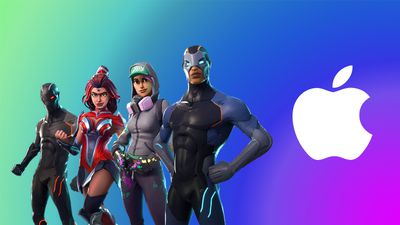Apple has told an Australian court that Epic Games' legal challenge against the App Store is "self-serving," and that all the software company aims to do is "redefine the terms of access" that it's always been subject to on Apple's platforms.

As reported by The Guardian, Apple and Epic Games on Tuesday went head-to-head in a federal court in Sydney, Australia, following Epic's decision to expand its legal battle into the country. Epic's case in Australia follows much of the same argument in the United States, claiming that Apple is a monopoly and that the App Store and in-app purchasing system are unfair.
During the tense court hearing, Apple's lawyer, Stephen Free SC, told the court that the legal battle is between "two Goliaths," referencing that Epic is valued at more than $17 billion. Free went on to say that Epic has obtained a significant amount of information on Apple's App Store and highlighted that some of Epic Games' success can be attributed to Apple's hardware and software.
You have a sophisticated commercial entity that sought and obtained access to Apple's intellectual property and all of the benefits of access to Apple's software and hardware, exploited that opportunity to great effect for many years, and the essence of the dispute … is that Epic wants to redefine the terms of access in quite fundamental and self-serving ways.
Epic Games is looking to give iPhone and iPad users more freedom as to where they choose to download their apps by offering an alternative app store. Currently, downloads are limited only to Apple's App Store, in which case apps are subject to Apple's guidelines. Free says that any other method for downloading apps would fundamentally rewrite Apple's business model.
Free says that the current business model is built around "prioritizing quality, security, and privacy of these operating systems." Free says that Apple can only live up to those priorities by ensuring that all developers play by the same set of rules for building and operating apps.
Epic's barrister, Neil Young QC, fought back, saying that Apple's actions go against Australian competition law and that the country's parliament intended for the rules to "be enforced in Australia and not be overridden by private agreements between companies like Apple and Epic," according to The Guardian's report.
"The issue is the impact on Australian markets and whether the requirements of our law are satisfied," Young said. "It is a pretty straightforward case, and we would think the evidence is clear this conduct is going to substantially impact these markets in the way we allege.
Justice Nye Perram has reserved his decision on whether the case can go ahead in Australia, but has said he will deliver it "pretty promptly."
In related news this week, thousands of miles away, Apple submitted a list of witnesses who will testify as part of the Apple vs. Epic Games case in California. Amongst the list includes CEO Tim Cook, Apple Fellow Phill Schiller, and senior VP of software Craig Federighi. The trial is set to begin on Monday, May 3.























